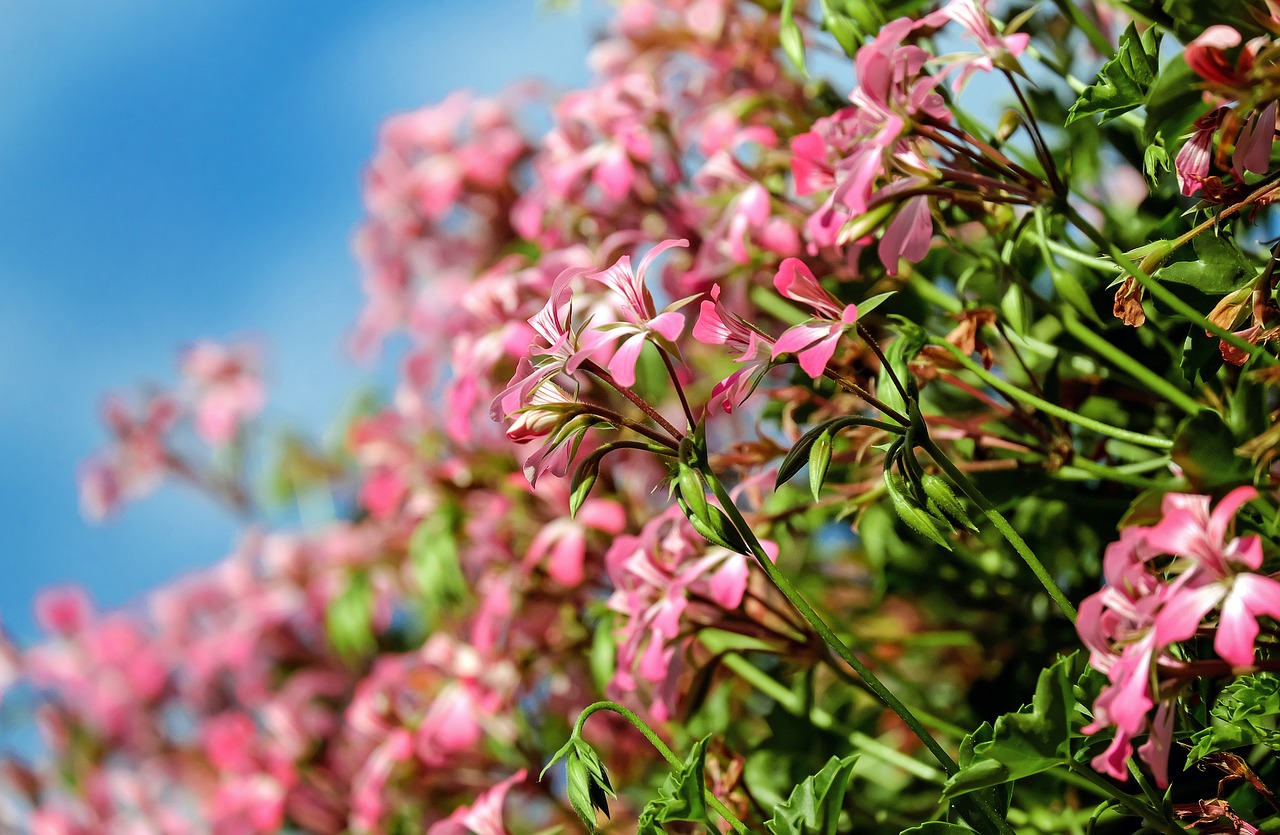Natural Insect Repellents in the Garden
Using essential oils means using natural products not chemicals in the garden and house. This should be a basic garden tool if we are going to make a productive vegetable or flowering garden.
It is so disheartening to see the veggie patch, after months of hard work, be eaten by insects and other natural nasties that frequent our gardens. So I have listed here some great natural helpers for insect repellents which can easily be grown along with the other plants in your garden.
Essential Oil Plants as Insect Repellents
Plants which produce essential oils for insect repellents are some of the nicest plants to grow both for scent and foliage.
Bergamot’s strong scented foliage may help mask susceptible plants from pests. The red flowers attract bees and predators.
Chamomile improves the vitality of its neighbors and improves pest and disease resistance. It also attracts beneficial insects like parasitic wasps and hover flies.
Coriander repels aphids and sap sucking insects. It is best when flowering. Bees like coriander so plant for pollination.
Carrot fly are repelled by mothballs. Break up mothballs and scatter them around the plants.
Mosquitos dislike the scent of Citronella, Lemongrass and Lavender. Plant or spray around the BBQ area to keep these biting insects at bay.
Or you can soak some string or strips of material in the essential oils and drape them in the trees or on the fence near where you are socializing.
Use a candle with drops of essential oil and place on the table. A drop of essential oil on the nightlight (bulb or flare) will disperse in the air when heated.

Geranium will repel pests by the scent from its leaves.
Garlic is a strong repellent to slugs. The essential oil of garlic is very strong so it might be easier to use the cloves instead. Crush the cloves and add 2 tablespoons to a watering can and water around the areas frequented by the slugs.
Lavender is the most effective and most pleasantly scented insect repellent in the garden. The highly fragrant flowers attract predators like hover flies. Vegetables thrive when near Lavender and also Thyme.
Marjoram is an insect repellent.
French Marigolds repel nematodes. Plant Marigolds or spray Tagetes.
Cabbage moth and aphids dislike members of the Mint family so plant or spray some around the plants. Mints can get away from you though and run wild in the garden so it might be best to use as a spray or in a portable pot.
Ants are repelled by the strong smell of Peppermint so to rid the garden of an ant’s nest add a couple of drops to the entrance of the nest and stand back. Peppermint is effective against mice as well so scatter some leaves around any areas which are frequented by mice.
Peppermint and Sage can be used in the watering can to deter the cabbage moth – just water all vegetables affected by this pest.
Rosemary’s fragrant leaves repel sap sucking insects and the flowers will attract predators. Rosemary can be grown as a border around the garden or the smaller, prostrate variety can be grown amongst the vegetables.
Scatter pine needles around the plants which seem to be attracting slugs most - the rough surface of the pine needles is irritating to the soft underside of the slug's body.
Tea Tree can mask the alluring aroma of edible plants and deter their pests.
Valerian secretes a chemical which enhances the growth of neighboring plants. It also attracts earthworms.
Insects Repelled
All of the plants listed below can be applied by planting, spreading the leaves around the vegetables or made into sprays or teas.
Ants
- Peppermint
- Spearmint
- Tansy

Aphids
- Basil
- Garlic
- Horseradish
- Nasturtium
- Stinging Nettle
Beetle
- Chrysanthemums
Black Fly
- Basil
- Lavender
- Stinging Nettle
Borers
- Garlic
- Flowering plants
Cabbage White Moth
- Celery
- Hyssop
- Rosemary
- Sage
- Wormwood
Carrot Fly
- Chives
- Rosemary
- Sage
- Thyme

Caterpillars
- Celery
- Tomatoes
Codling Moth
- Fennel
- Parsnips
Cutworm
- Bark
- Oakleaf
- Mustard
Flea Beetle
- Mint
- Wormwood
Fleas
- Lavender
- Mint
Flies
- Rue
- Tansy
- Tomatoes
- Wormwood

Mosquitoes
- Lavender
- Mint
- Rosemary
- Sage
- Southernwood
Nematodes
- Marigolds/Tagetes
Scale
- Bracken
- Thistles
- Artichokes
- Hyssop
- Comfrey
Slugs
- Chives
- Wormwood
Snails
- Garlic
Sooty Mould (from sap-sucking insects)
- Artichokes,
- Hyssop
- Nasturtiums
- Marigolds
- Thistles
Woolly Aphids
- Nasturtium